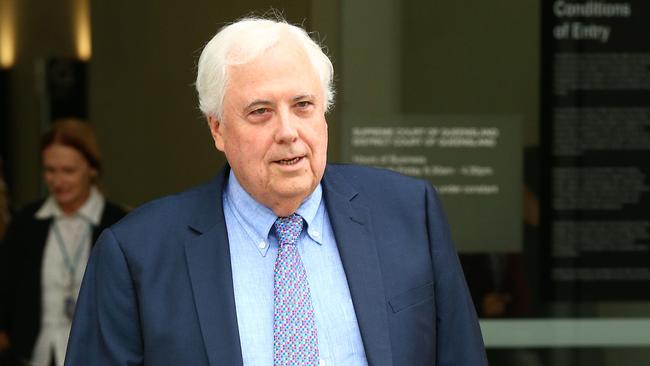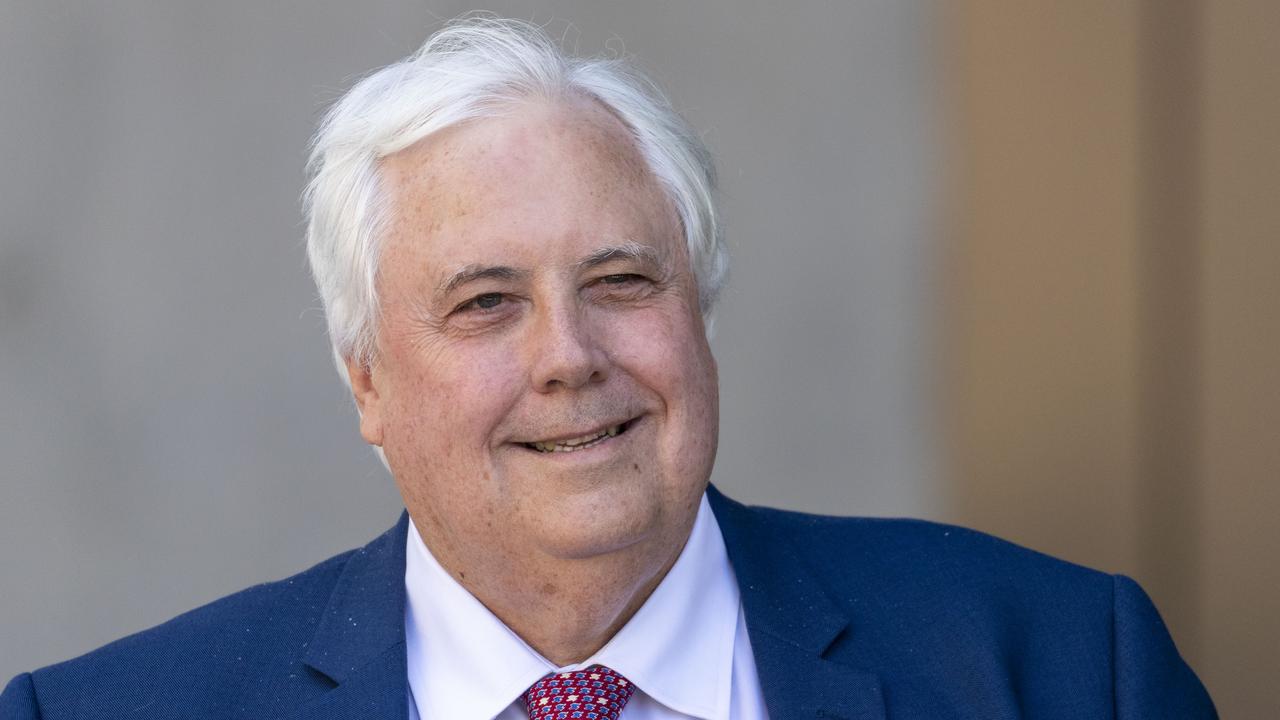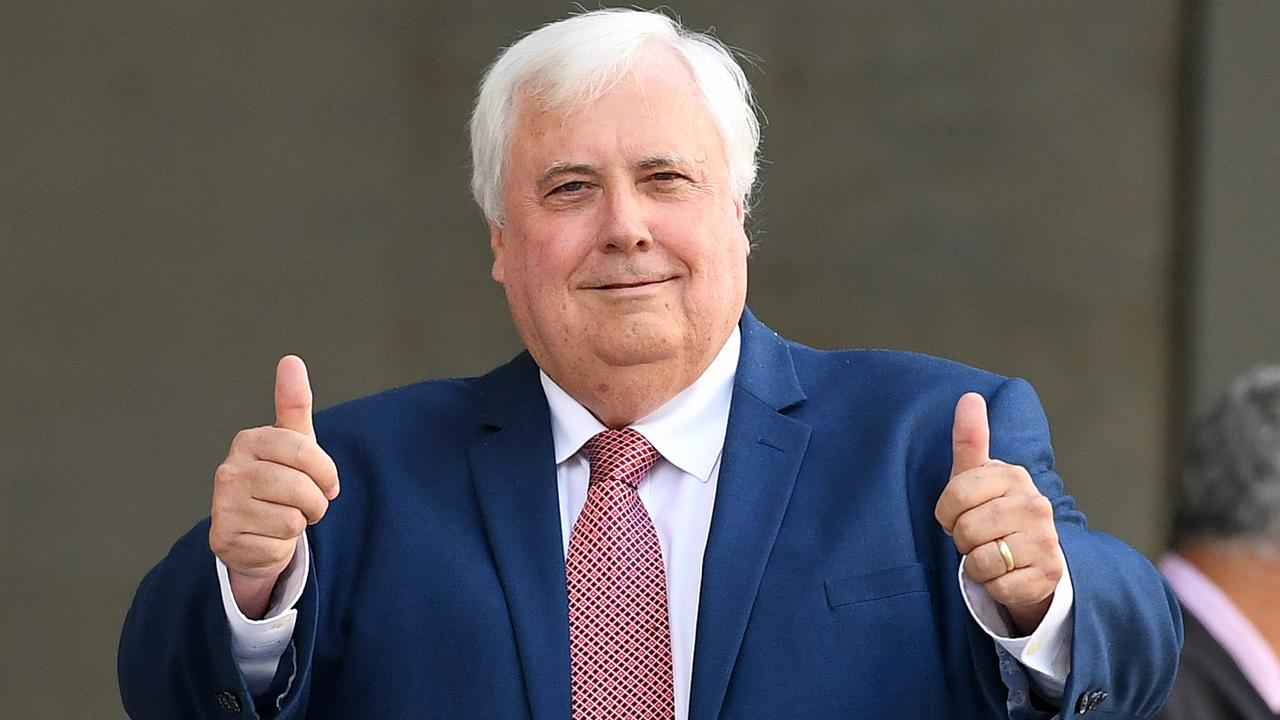Clive Palmer accused of ‘inventing’ evidence in his diary
Clive Palmer may have ‘invented’ evidence in his diary to justify ripping millions out of Queensland Nickel.

Clive Palmer may have “invented” pencil-written evidence in his diary to justify ripping millions of dollars out of Queensland Nickel before its collapse, taxpayer-funded liquidators allege.
In new court documents, PPB Advisory levels its most damning personal attack on Mr Palmer yet, accusing the former federal MP of giving misleading evidence in court, bankrolling his fugitive nephew Clive Mensink, and giving three different excuses for funnelling $4.5 million of refinery money to a mysterious Chinese woman.
Queensland Nickel’s liquidators say the Supreme Court of Queensland must freeze $200m worth of Mr Palmer’s assets urgently because he is “disposing” of valuable assets and will “manipulate events to defeat (liquidators’ lawsuits) by whatever means are at his disposal”.
The documents also allege Mr Palmer siphoned $78,000 out of Queensland Nickel months before it collapsed to buy his then 20-year-old daughter Emily a “brand-new Mercedes Benz”, with the money never repaid to the cash-strapped company.
Most extraordinary is the allegation that Mr Palmer might have falsified his “little green book”, a key piece of evidence he tendered to the Federal Court last year when he was forced to testify, swearing he had recorded details about meetings of the Queensland Nickel Joint Venture Owners Committee for six years.
The pencil-written book purported to give Mr Palmer the power to rip cash out of Queensland Nickel at his whim, for any reason, including making political donations to his now defunct Palmer United Party.
“There is … reason to suspect that the green notebook is not a genuine document,” the liquidators allege in liquidators’ court submissions, written by top silk Shane Doyle QC, the former head of the Queensland Bar Association. “The minutes and amendments it purports to record are written entirely in pencil, purportedly over a six-year period; it was not shown to anyone, despite its importance to the way the joint venture agreement was to operate; and its informality is at odds with the more formal record-keeping carried out in the rest of the joint venture.”
The liquidators say the court does not need to find Mr Palmer forged the green book, alleging it reflected poorly on him either way. However, PPB Advisory alleges that if it is not genuine, “then Mr Palmer was prepared to invent a document, at a late hour, in order to give post-hoc justification to his earlier conduct”.
Documents written in pencil are nearly impossible for handwriting experts to date, compared with those written in pen.
In a text message to The Australian yesterday, Mr Palmer denied he had “invented” the little green book. “Nc as they know the matter was dealt with in my examinations it just not true (sic),” Mr Palmer wrote.
Mr Palmer’s Queensland Nickel refinery company in Townsville was north Queensland’s largest private employer when it failed last year, costing creditors more than $300m and nearly 800 workers their jobs.
The new court documents allege that Mr Palmer has given three different excuses for paying Chinese woman Zhenghong Zhang $4.5m out of Queensland Nickel coffers in 2012 but none of the reasons is supported by “independent credible records”.
Liquidators say he swore in court that the November 2012 payment was for “operations in China”, but it was recorded in company documents as “representation fees” and described as “travelling expenses” in internal emails within the Palmer Group.
The fresh allegations question the veracity of more of Mr Palmer’s sworn testimony, accusing him of being “less than frank” with the court about selling his assets.
PPB Advisory alleges that Mr Palmer breached Australia’s corporations laws, allowed Queensland Nickel to trade while insolvent, and shirked his duties as a company director. The lawsuit also sues Mr Palmer personally for more than $73m and alleges that he and Mr Mensink each owe damages worth $13m.



